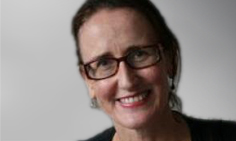GETTING the money together to run a clinical trial isn’t the easiest of tasks, particularly when it is for rare conditions where the potential returns are unlikely to be big enough to attract industry support.
But for the incurably ill patient, who’s exhausted all conventional treatment options, the only remaining hope may lie in becoming part of such a clinical trial.
Could the funding solution for these trials be to charge wealthy patients for the right to participate?
It’s an ethically fraught idea, but writer Alexander Masters believes a pay-to-participate model could provide the funding for life-saving research that might otherwise never happen.
In fact, he has already put that belief into practice, as he outlines in an article for the Wellcome Institute’s Mosaic magazine.
When his best friend, Dido Davies, was diagnosed with neuroendocrine cancer, Masters started looking for clinical trials she might be able to join.
At Uppsala University in Sweden, researchers had identified an oncolytic virus that had shown potential in mice but plans for human trials had been shelved for lack of funds.
Masters set about trying to raise the $4 million needed for a clinical trial, based on an agreement from the researchers that both Davies and any major financial backer would be guaranteed places in the treatment arm.
The researchers were even prepared to offer naming rights for their virus to the first person to come up with $2 million.
It proved surprisingly easy to raise the money. After Masters wrote about the quest in a UK newspaper, Vince Hamilton, a wealthy Arizona oilman who also had the disease, put up the bulk of the funds and the trial is now going ahead.
Sadly, though, it will be too late for Hamilton and Davies, as both have now died.
Is this an exciting new funding model for medical research? Masters believes so and is seeking to set up a “dating agency” to match wealthy patients with researchers in need of funding. Ideally, he says, this would be run by a reputable and independent organisation, perhaps a charity.
He argues it’s possible to resolve the ethical issues such a proposal might raise. In fact, he has received in-principle support for the idea from a number of scientists and ethicists, including expatriate Australian Professor Julian Savulescu.
“There are still many questions, but the dating agency idea has got past its three phases of criticism — from ethicists to show that it is not reprehensible, from lawyers to ensure it is legal, and from scientists and biotech CEOs to confirm that it is needed”, Masters writes.
Not everybody agrees. US ethicists writing in Science Translational Medicine argue the “pay-to-play” approach should be banned.
“Researchers who offer the wealthy preferential access to places in research studies or who entice people to mortgage their homes so they can participate in clinical research take unfair advantage of people at a time when their judgment is potentially compromised”, they write.
Success rates for early-stage trials are low, they note, something desperate patients may well overlook in their eagerness to find a cure.
This kind of funding also risks compromising trial quality (might inclusion criteria be tweaked to ensure a wealthy benefactor qualified?), and could end up skewing research agendas towards the diseases of the wealthy and away from those that more often affect the poor, such as lead poisoning or tuberculosis, they warn.
And that’s when mainstream scientists are involved. The opportunities for the less scrupulous are clearly enormous.
You can just imagine the ads: “Dying of cancer? Do we have the trial for you! Hand over your worldly goods and we’ll have you better in no time at all.”
Jane McCredie is a Sydney-based science and medicine writer.

 more_vert
more_vert